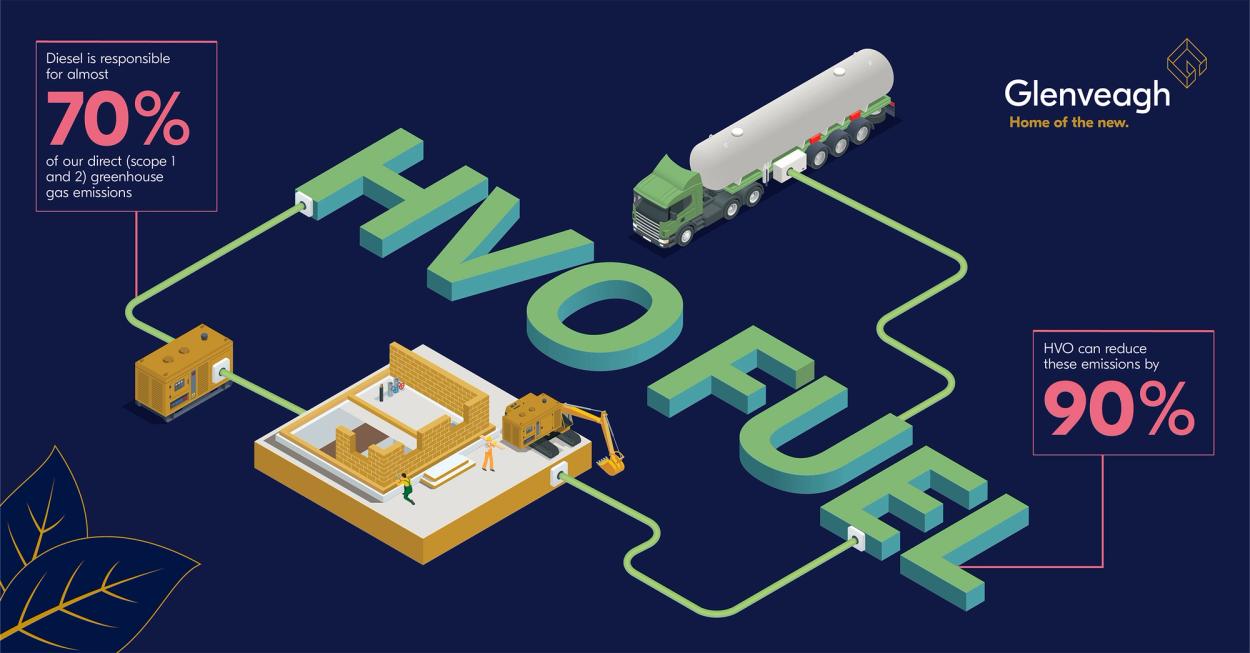


As part of our Net Zero Transition Plan which we published in March, Glenveagh Properties plc is transitioning sites to renewable fuel, switching from diesel to Hydrotreated Vegetable Oil (HVO) to run onsite power generators, plant and non-road mobile machinery. Currently, this diesel is responsible for almost 70% of our direct (scope 1 and 2) greenhouse gas emissions. When compared to standard diesel, HVO can reduce these emissions by 90%.

HVO is a low-carbon biofuel that works as a direct replacement for conventional diesel without the need for engine modifications. It is a renewable diesel that is typically produced from a variety of vegetable oils and fats that are treated thermo-chemically with hydrogen. In addition, to reducing greenhouse gas emissions, it can also help to significantly improve local air quality through the reduction of Nitrogen Oxides (NOx) by 29% and particulate matter by 85%.
Head of Sustainability at Glenveagh, Lorraine Fitzgerald said: “The switch to HVO marks a key milestone on our decarbonisation journey at Glenveagh. Our Net Zero Transition Plan sets out our ambitious science-based targets, to reduce our direct emissions by 46% by 2031, and to achieve net zero by 2050. Much of our emissions come from fossil fuels used on our sites, so this is an area where we can make a significant and direct impact in tackling our carbon emissions reductions.”
Find out more about Glenveagh’s transition to HVO in our HVO position paper here.